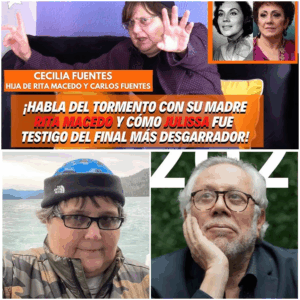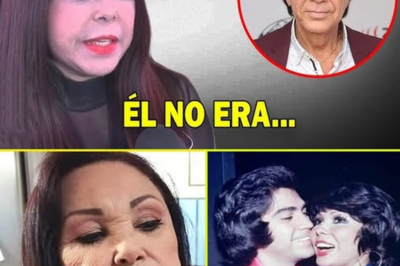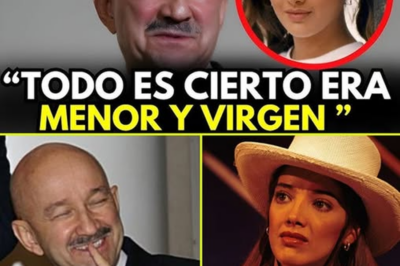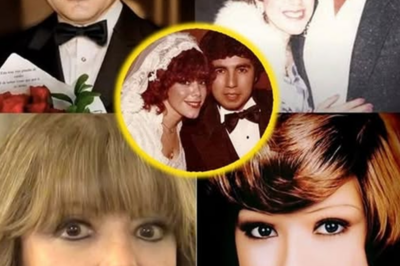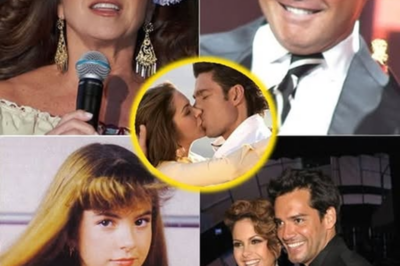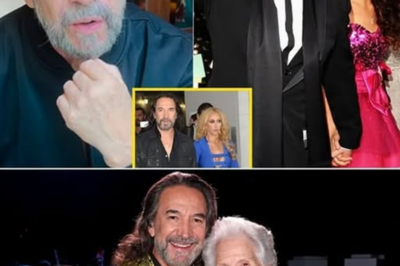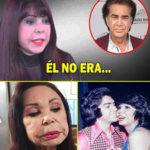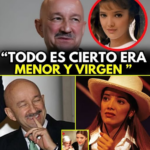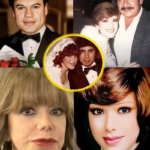Cecilia Fuentes drops a bombshell 😱 — “My father wanted to be a man” — The confession that rewrites the public image of Carlos Fuentes
In a candid, unfiltered conversation with journalist Matilde Obregón, Cecilia Fuentes, daughter of the legendary Mexican novelist Carlos Fuentes, opened a chapter of her life she had kept closed for decades. Known for her discretion and reluctance to talk publicly about family matters, Cecilia shocked viewers by pulling back the curtain on complex, deeply personal aspects of her father’s life and identity.
The interview that changed everything 🎙️
Cecilia appeared calm yet resolute, as though she had been waiting years for this moment. The interview started innocently — recollections of her childhood, anecdotes of growing up in a home filled with books, intellectual debates, and prominent guests from the worlds of politics and art.
But as the questions dug deeper, Cecilia began to reveal a side of Carlos Fuentes the public never knew.
“I think there was a part of my father that struggled with who he was expected to be. People saw him as this powerful, masculine figure of letters… but he once confided in me something I never forgot.”
The shocking confession 💥
With a pause and visible emotion, Cecilia told Obregón:
“My father expressed a desire — more than once — to be a man in a different sense. Not the man society forced him to be, but the man he felt inside. It was about identity, not performance. It was about being free from the rigid roles he was trapped in.”
The statement left the interviewer momentarily speechless. Was she implying a struggle with gender identity? Or was this about rebelling against traditional male archetypes in Mexican society? Cecilia didn’t offer a single, neat label — instead, she painted a picture of an intellectual caught between public expectations and private truths.
Layers of meaning 🕵️♀️
Cecilia clarified that her father’s “desire to be a man” was not a question of biological sex, but of self-definition.
“He was always performing the role people demanded of him — the alpha, the seducer, the public intellectual. But there were moments, just between us, where he admitted he wanted to shed all that and just be the man he chose to be… a man without the mask.”
She described these conversations as fleeting but intense, often taking place late at night, over coffee or wine, when the literary icon allowed himself to be simply her father, stripped of the weight of fame.
Why she stayed silent until now 🤐
When asked why she had kept this revelation to herself for so long, Cecilia admitted that protecting her father’s reputation — and her own privacy — had been paramount.
“Mexico wasn’t ready for that kind of honesty back then. And I wasn’t ready to share something so intimate about someone I loved so deeply.”
With time, she says, she realized that sharing his vulnerability only deepens his legacy, showing a side of Carlos Fuentes that was human, conflicted, and searching.
A different Carlos Fuentes 📚
To the public, Carlos Fuentes was a towering figure in Latin American literature — the author of Aura, The Death of Artemio Cruz, and Terra Nostra. He was celebrated, even mythologized, for his intellect, charisma, and unapologetic opinions on politics and culture.
But Cecilia’s words invite readers to imagine a man who, despite global acclaim, privately questioned the very mold into which he had been cast.
“He was brilliant, but also tired of being brilliant all the time. He wanted to live without the constant performance. That was his truth.”
Public reaction 🌎
The interview clip quickly went viral, sparking debate among fans, literary critics, and cultural commentators. Some praised Cecilia for her courage in sharing such a nuanced perspective; others questioned whether such personal details should have been revealed at all.
On social media, reactions ranged from admiration — “This makes me respect Carlos Fuentes even more” — to controversy — “Some things should remain in the family”.
Conclusion: a legacy reframed 🖋️
Cecilia Fuentes’ revelation doesn’t diminish her father’s stature — if anything, it adds depth to the myth. It reminds us that even icons carry private truths that don’t fit neatly into public narratives.
As Cecilia put it in her closing words:
“We all have the right to define ourselves. My father taught me that, even if he couldn’t always live it himself.”
News
🔥😱 ¡La revelación que nadie esperaba! Lila Morillo rompe su silencio a los 84 años y deja al mundo conmocionado
😱🔥 Nadie esperaba esta confesión. Lila Morillo decide hablar ahora. Su verdad emociona. La memoria despierta. El público reacciona con…
🔥😱 “La devastadora historia de Adela Noriega y un contexto político de los noventa: un secreto desvelado que deja sin aliento”
😱🔥 Nadie lo vio venir. Un secreto de los noventa se revisita. Adela Noriega en el centro. El poder y…
😱🔥 A los 70 años, Yolanda del Río revela detalles inéditos de su vida personal que sorprendieron a todos: ¡la verdad sale a la luz!
🔥😱 Nadie esperaba estas revelaciones. Yolanda del Río decide hablar ahora. La verdad personal emerge. Años de silencio terminan. El…
😱🔥 Después de muchos años de silencio, a los 56 años, Lucero sorprende al público al admitir una verdad que había sido objeto de rumores durante muchos años
🔥😱 Nadie lo esperaba así. Lucero admite una verdad largamente comentada. El misterio se disipa. La confesión sorprende. El público…
😱🔥 A sus 65 años, Marco Antonio Solís finalmente admite lo que todos sospechábamos: una revelación que ha dejado a todos sorprendidos
🔥😱 Nadie esperaba esta confesión. Marco Antonio Solís decide admitirlo. Décadas de canciones cobran sentido. La revelación conmueve. Sus seguidores…
🔥😱 Isabel Preysler, a los 75 años, enfrenta una etapa delicada con el apoyo de sus hijos: el contexto que lo vuelve todo más serio
😱🔥 Nadie lo esperaba. Isabel Preysler atraviesa una etapa de reajuste. La familia se une. El contexto se aclara. La…
End of content
No more pages to load

